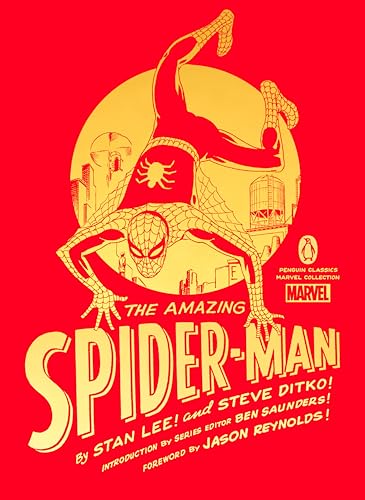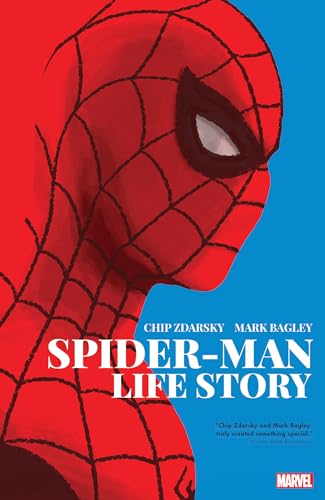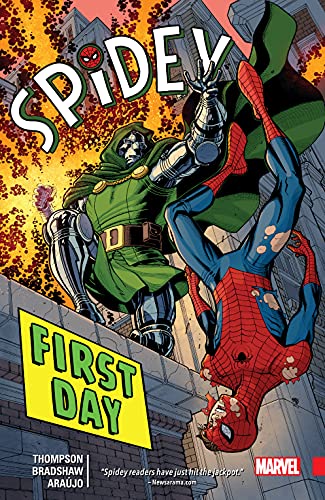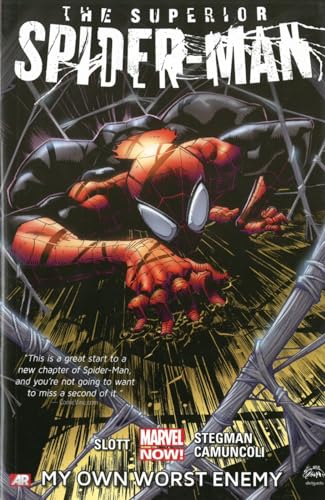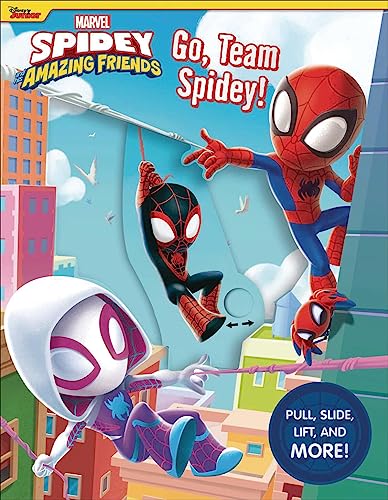
Best Spider-Man Comics for Beginners: Start Here!
Table of Contents
Table of Contents
Introduction: Why Spider-Man, and Why Now?
Spider-Man isn’t just a superhero—he’s a cultural icon. Since swinging onto the scene in Amazing Fantasy #15 back in 1962, Peter Parker has become one of the most beloved and enduring characters in all of pop culture. From comics and cartoons to blockbuster movies and video games, Spider-Man has connected with generations thanks to one timeless idea: that anyone, even a nerdy teen from Queens, can be a hero.
But here’s the catch—with great history comes great confusion.
With over 60 years of stories, hundreds of titles, reboots, alternate universes, and character evolutions, jumping into Spider-Man comics can feel overwhelming. Where do you even start? Should you begin with the originals from the 1960s? Do you need to read every issue? What about all the spin-offs like Miles Morales, Spider-Gwen, or Spider-Verse?
Here’s the good news: You don’t have to read everything. In fact, Spider-Man has several well-designed entry points that are perfect for new readers—whether you want classic stories, modern vibes, or even all-ages adventures. The trick isn’t reading it all—it’s finding the right web strand to start swinging from.
This guide is for:
- New readers trying to make sense of where to begin
- Fans returning after a break and wanting a fresh re-entry
- Collectors and completists building a foundational reading list
- Movie/show fans curious about the comics that inspired the screen
So whether you’re a first-time reader, a nostalgic fan, or just Spider-curious, this is your roadmap to the best beginner-friendly Spider-Man comics—curated, accessible, and 100% continuity-anxiety-free.

Essential Starter Comics
If you’re new to the Spider-Verse, these are the cornerstone comics that provide a clear, accessible foundation for understanding who Peter Parker is, how his world works, and why he’s stood the test of time. Each of these entries offers a different flavor of Spider-Man—from vintage to modern classic—without overwhelming you with decades of backstory.
1. Amazing Fantasy #15 (1962)
Creators: Stan Lee & Steve Ditko
Where to read: Marvel Unlimited, reprint editions, or collected trades
“With great power comes great responsibility.”
The origin that started it all. In just 11 pages, Stan Lee and Steve Ditko crafted one of the most enduring origin stories in superhero history. You’ll meet Peter Parker, the awkward high school student who gains spider powers—and learns a tragic lesson that defines his life forever.
Why It’s Perfect for Beginners:
- It’s short and iconic—you’ll read it in minutes, but its impact lasts forever
- No continuity required—this is ground zero for Spider-Man
- Sets up Peter’s motivations, values, and pain in one powerful story
If you’re the kind of reader who loves starting from the true beginning, this is your must-read moment.
2. The Amazing Spider-Man #1–38 (1963–1966)
Creators: Stan Lee & Steve Ditko
Where to read: Epic Collections, Omnibus Vol. 1, Marvel Unlimited
After his debut, Spidey quickly got his own title—and it’s in these early issues that his world truly starts to grow. You’ll encounter classic villains like Doctor Octopus, Green Goblin, Sandman, and Vulture. You’ll meet J. Jonah Jameson, Betty Brant, and Aunt May. And you’ll see Peter juggle school, work, and crimefighting—often failing, but never giving up.
Why It’s Perfect for Beginners:
- These issues build the Spider-Man mythos from the ground up
- You’ll experience the classic Marvel storytelling style
- Great for readers who enjoy retro art and Silver Age charm
- Most major characters and conflicts still echo through modern runs
If you’re a fan of superhero history or want the “full picture,” these issues are your next step.
3. Ultimate Spider-Man (2000–2011)
Creators: Brian Michael Bendis & Mark Bagley
Where to read: Ultimate Spider-Man Vol. 1 TPB, Marvel Unlimited
The perfect modern entry point. This series reimagines Peter Parker’s origin and early years for a new generation—no need to know anything beforehand. The writing is sharp, the art is consistent, and the character work is some of the best in all of Marvel. It’s cinematic, emotionally rich, and deeply addictive.
Why It’s Perfect for Beginners:
- A clean reboot with no baggage from earlier decades
- Peter feels relatable, grounded, and modern
- A long, consistent run—perfect for binge reading
- Influenced everything from the MCU to Into the Spider-Verse
If you want the emotional highs of a TV drama mixed with superhero action, this is the beginner’s gold standard.
4. Amazing Spider-Man: Brand New Day (2008, #546–)
Creators: Dan Slott, Steve McNiven, and others
Where to read: “Brand New Day” trade paperback, Marvel Unlimited
After a major continuity reset (no need to worry about it), Marvel gave Peter Parker a clean slate. This run acts as a fresh starting point for modern readers. He’s single, living in NYC, dealing with new villains and everyday problems. The tone is classic Spidey—fun, fast-paced, with occasional heartbreak.
Why It’s Perfect for Beginners:
- Modern storytelling with classic Spidey spirit
- Clean break from previous continuity
- Introduces a new rogues gallery and brings back old favorites
- Great jumping-in point for readers who like current continuity
If you want something that feels both modern and true to Spidey’s roots, this is your sweet spot.
Unique & Condensed Retellings
The Spider-Verse in a nutshell — these series offer bite-sized brilliance, emotional depth, and a sweeping sense of Spider-Man’s legacy.
If you want the essence of Spider-Man without committing to long-running series or if you’re more into thematic storytelling than month-to-month continuity, these comics are your fast-pass to the emotional heart of Peter Parker’s journey.
Spider-Man: Life Story (2019)
Creators: Chip Zdarsky & Mark Bagley
Where to read: Collected hardcover, Marvel Unlimited
Imagine if Peter Parker aged in real time—starting as a teen in the 1960s and growing older through every decade, carrying the burden of heroism across a lifetime. That’s the powerful premise of Life Story, a limited series that reinterprets key moments from his history through the lens of age, politics, and mortality.
Why It’s Perfect for Beginners:
- A decade-by-decade breakdown of Spider-Man’s life
- Emotional and mature without requiring deep continuity knowledge
- Condenses 60+ years of storytelling into 6 brilliant issues
- Beautiful art, clever writing, and historical framing
If you want the whole arc of Spider-Man’s life in one powerful narrative—this is your must-read.
Spidey (2015–2016)
Creators: Robbie Thompson & Nick Bradshaw
Where to read: Spidey Vol. 1 TPB, Marvel Unlimited
This is Peter Parker at his most fun. Spidey is a high-energy, episodic series focused on his high school years, classic villains, and lighthearted storytelling. It’s essentially a “greatest hits” album for Spider-Man—designed for speed, style, and accessibility.
Why It’s Perfect for Beginners:
- No continuity confusion—just fun, fast, friendly adventures
- A modern take on classic Spidey without the weight of long arcs
- Perfect for casual readers or younger teens
- Great art that captures Spidey’s signature flair
If you’re looking for something that captures the spirit of Spider-Man without diving into dense history, Spidey is a web-slinging delight.
Alt Takes & Bold Twists
Spider-Man redefined—storylines that challenge the hero’s identity, morality, and legacy.
Sometimes, the best way to understand a character is to watch them change—or break. These comics offer radical takes on the Spider-Man mythos that are still accessible for newcomers. They’re bold, surprising, and perfect if you’ve seen the basics and want a twist.
7. Superior Spider-Man (2013)
Creator: Dan Slott
Where to read: Superior Spider-Man Vol. 1 TPB, Marvel Unlimited
In a shocking body-swap twist, Peter Parker dies—sort of—and his longtime enemy Doctor Octopus takes over his body, mind, and responsibilities as Spider-Man. But Otto Octavius isn’t interested in just being Spider-Man—he wants to be a better Spider-Man.
Why It’s Perfect for Beginners:
- A standalone, high-concept story with emotional depth and shocking moments
- You don’t need to know much about prior continuity—just the Peter/Otto rivalry
- Explores what makes someone truly heroic
- Mixes sci-fi, action, dark humor, and redemption arcs
If you like antiheroes, “what if” scenarios, or complex morality plays, this is a bold and satisfying read that still pays tribute to who Peter Parker really is.
Bonus Mention: Spider-Man: Reign (2006)
For mature readers—a dystopian take on an aged Peter Parker à la “The Dark Knight Returns.” Haunting, poetic, and emotionally devastating.
Spider-Man for All Ages
Friendly neighborhood comics for kids, families, and lighthearted readers.
Spider-Man has always been Marvel’s most relatable, approachable, and age-flexible hero. Whether you’re introducing a young fan to comics for the first time or just want a breezy, wholesome version of Peter Parker, these all-ages titles deliver big heart without the heavy continuity.
8. Marvel Adventures: Spider-Man (2005–2010)
Various creators
Where to read: Marvel Adventures Spider-Man Vol. 1–5, Marvel Unlimited
This long-running series strips away the complex Marvel universe and gives you self-contained Spidey adventures that are full of fun, humor, and heart. No drama, no darkness—just classic web-slinging action for younger readers or anyone who wants a break from grim and gritty.
Why It’s Perfect for Beginners:
- Episodic stories—you can start with any issue
- Clean art, accessible plots, and no baggage
- Great for ages 7+, but enjoyable at any age
- Spidey is clever, kind, and charming—everything you’d want in a hero intro
9. Spidey and His Amazing Friends (2021–present)
Based on the hit Disney+ show
Where to read: Early reader graphic novels, Marvel.com, Scholastic editions
This is Spider-Man for preschoolers, starring Peter, Gwen (Ghost-Spider), and Miles Morales. Bright colors, positive messages, and simple language make it perfect for the youngest readers who want to swing into superhero fun.
Why It’s Perfect for Beginners:
- Tailored for ages 3–7
- Adapted directly from the popular TV show
- Encourages teamwork, kindness, and problem-solving
- Great gateway for families and first-time comic readers
💬 Honorable Mentions:
- Spidey School’s Out (2018) – A fun digital-first series set during summer break
- Spider-Man Loves Mary Jane (2005–2007) – High school romance meets superhero drama with a fresh teen perspective
Whether you’re a parent, teacher, or nostalgic adult, these comics are perfect for sharing the magic of Spider-Man without worrying about darker themes or complex backstories.
Tips for New Spider-Fans
Your friendly neighborhood advice for navigating Spidey’s web of stories.
Let’s be honest—starting with Spider-Man can feel like staring at a skyscraper made of comics. But here’s the truth: there’s no wrong way to begin. You don’t need to be a Marvel historian or read 800+ issues to enjoy the magic of Peter Parker. You just need the right launchpad for you.
Here are a few tips to keep your reading journey exciting, not overwhelming:
1. Don’t Start From the Beginning (Unless You Really Want To)
Yes, Amazing Fantasy #15 is iconic. Yes, the early Stan Lee/Steve Ditko run is historically important. But if 1960s storytelling and retro art styles don’t speak to you, it’s totally okay to skip them.
Instead: Start with Ultimate Spider-Man, Spidey, or Brand New Day—they’re modern, accessible, and beginner-friendly.
2. Use Marvel Unlimited or Collected Editions
Collecting single issues is fun, but it can be expensive and fragmented. Marvel Unlimited gives you access to thousands of digital comics—including most beginner-friendly runs—for a monthly fee. Trade paperbacks (TPBs) are also great, bundling multiple issues into one easy-to-read volume.
Bonus: Many TPBs include recap pages and creator commentary to help you understand the context.
3. Start With What Excites You
Are you into emotional storytelling? Try Spider-Man: Life Story. Want MCU vibes? Ultimate Spider-Man mirrors the tone. Just want to smile? Go with Marvel Adventures Spider-Man or Spidey and His Amazing Friends.
The best entry point is the one that makes you want to keep reading.
4. You Don’t Need to Read Everything in Order
Comics aren’t like TV episodes—you can hop around. Most modern arcs are written in 4–6 issue storylines, so once you finish one volume, you can jump to another run or era. Continuity can enrich the experience, but it’s not a barrier*
Spider-Man is built on timeless themes: responsibility, resilience, and hope. Those never go out of order.
Final Word: There’s no gatekeeping in comics. Whether you read one story or 100, you’re still part of the Spider-Man fandom.
Final Thoughts: Start Your Spider-Man Journey Today
Whether you’re swinging into Spider-Man comics for the first time or returning after a break, the most important thing is this: you don’t need to read everything—just start somewhere fun. Peter Parker’s journey is timeless because it’s not about perfect continuity—it’s about imperfect people doing their best with what they’ve got.
From radioactive spider bites to real-life struggles with rent, responsibility, and relationships, Spider-Man is the superhero who feels the most human. And no matter your age, background, or fandom level, there’s a version of his story waiting for you.
So grab a comic, open the first page, and let the webs pull you in.
Welcome to the Spider-Verse.
FAQs
What’s the best Spider-Man comic to start with?
It depends on your taste:
For modern origin → Ultimate Spider-Man
For emotional one-shot → Spider-Man: Life Story
For younger readers → Marvel Adventures or Spidey and His Amazing Friends
Are Spider-Man comics connected to the movies?
Yes, but loosely. The movies pull inspiration from multiple runs—Ultimate Spider-Man in particular influenced the MCU and Into the Spider-Verse.
Where can I read these comics online?
Marvel Unlimited (official digital subscription service)
ComiXology / Amazon
Collected editions from your local comic shop or library
What’s the difference between Peter Parker and Miles Morales?
Peter is the original Spider-Man from Queens, introduced in 1962. Miles, introduced in 2011, is a younger Afro-Latino Spidey with his own powers and unique story in the Ultimate Universe—and both are awesome.


